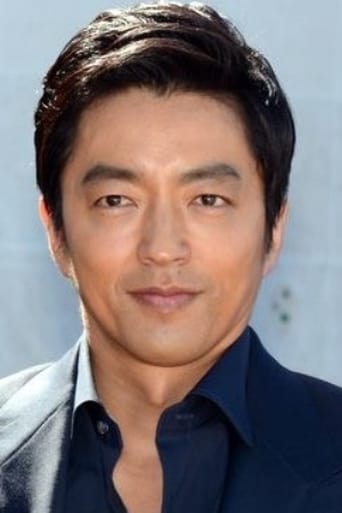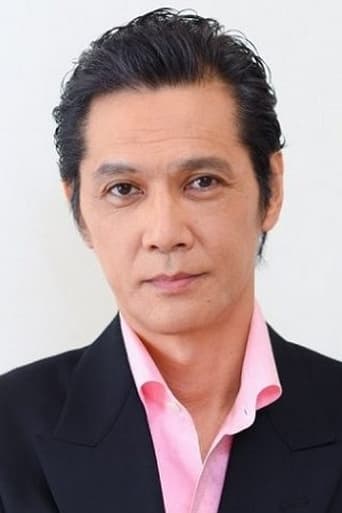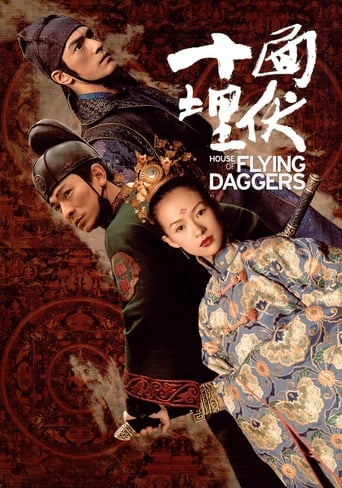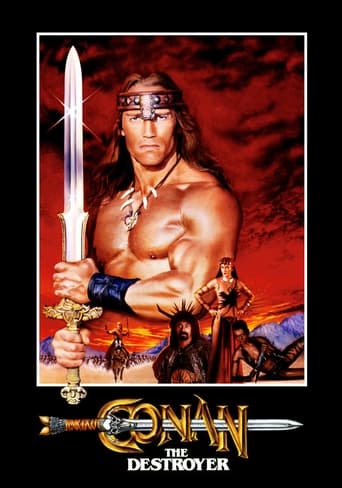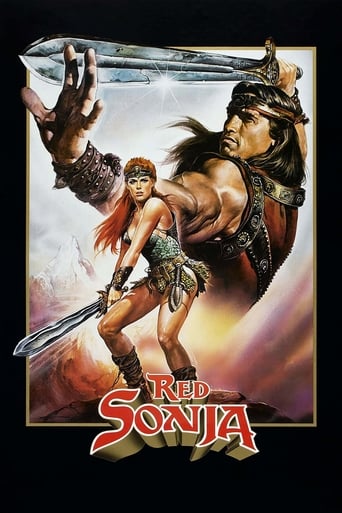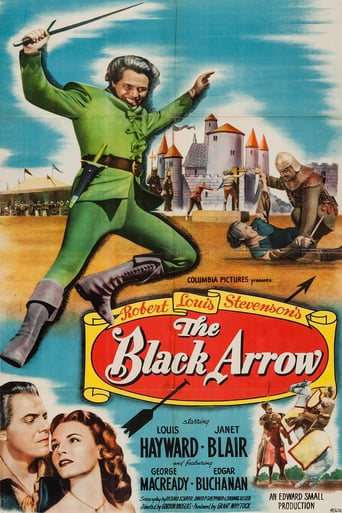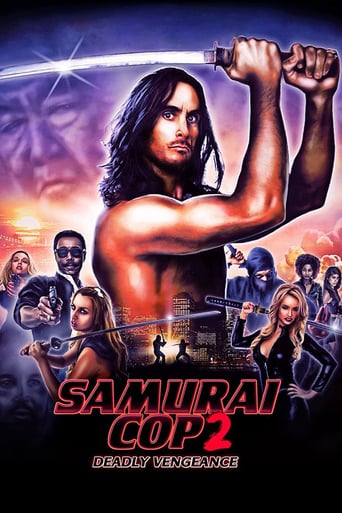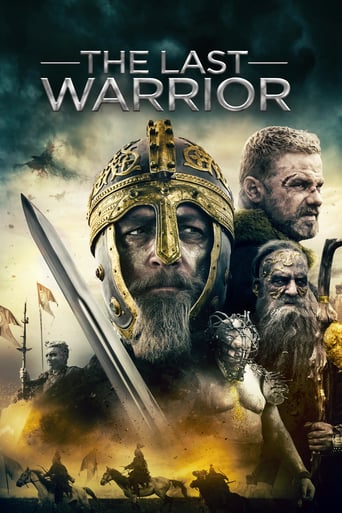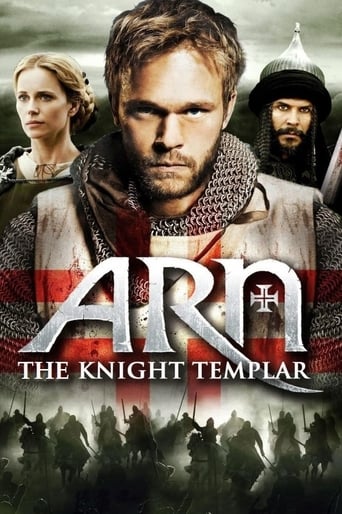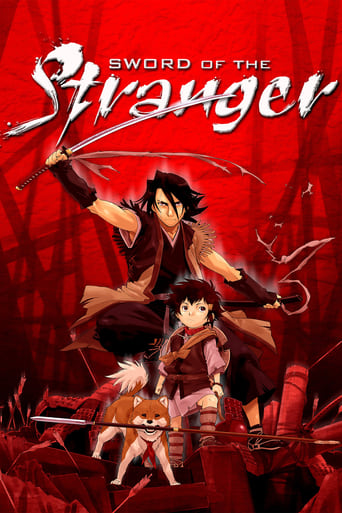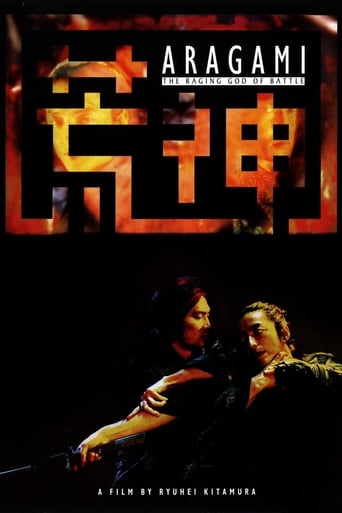
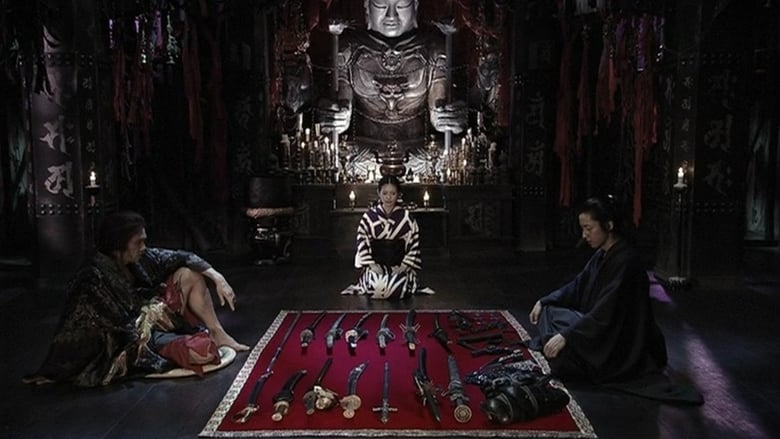
Aragami (2003)
Two seriously wounded samurai find refuge from a storm at an isolated temple, the home of a swordsman and a mysterious young woman. One samurai awakes to find that not only has his comrade died, but that his wounds have miraculously healed. He discovers that he has been given the power of immortality by the swordsman, a man once known as the legendary Miyamoto Musashi, who now lives an endless existence as Aragami, a "god of battle".
Watch Trailer
Cast


Similar titles
Reviews
The story is just another take on Versus, a movie previously done by Kitamura. There is nothing new here and it's pretty talky. While that is not a bad thing per se, there is nothing in the dialogue that makes it really worth while. And as mentioned, we have seen this better in "Versus" before.You could say it's a bit of curse for Kitamura. But I do wonder, why he chose to make his part in the "Dual Project" (two movies by Japanese directors with the same starting premise, the other being 2LDK), a Versus copy, instead of coming up with an original idea. It would have benefited much. I do know though, that some people did like the dialogue and some people here, like the fight scenes too. The latter are good no question, but you have to endure quite a bit of dreadful "nothing happening" until you get to those. The movie is definitely too long
Director Ryuhei Kitamura, now famous thanks to the big success of "Versus" and "Azumi", was challenged to make this experimental film in an odd bet with producer Shinya Kawai and fellow filmmaker Yukihiko Tsutsumi. Named the "Duel" project, Kawai challenged the two filmmakers to each create a feature length movie with only two actors, battling in one setting and filmed entirely in one week. With those restrictions limiting the development of a film, a challenge like that sounds insane; but Kitamura succeeds and delivers a film of almost the same caliber as "Versus".In Kitamura's film, two wounded samurais arrive to a lost temple in the mountains looking for a place to rest. Later, one of them awakes fully healed and is welcomed by the only priest in the temple. He introduces himself as Aragami (Masaya Kato), the God of Battle, and informs the samurai (Takao Osawa) that he healed his wounds, but had to kill his companion to do it. His purpose: to have a duel to death with the samurai.The movie moves around the showdown, not only physical, but also philosophical between these two warriors; with fluid camera-work that mimics the style of Manga comic books, Kitamura keeps the film moving despite being set entirely in the main room of the temple. This stylish use of the camera really is one of the film's strongest points, as it makes the set look different even when they never change of room.The characters are very well defined and thanks to a very good developed script, they never let the movie fall. Just like the visuals, the writing is very similar to those of Manga, and one could say that this is exactly how a Manga would look if it were translated frame by frame to screen. While at times the movie drags, it is understandable that a lot of effort was put to make it entertaining even when it's only about two people talking and fighting.Masaya Kato gives a powerful performance as Aragami, a being beyond man's understanding and with fighting skills perfected through centuries of practice. He really becomes his character and truly makes one belief that he has seen a lot in his life. At the same time, Osawa is very good as the samurai, confused by all what is happening and whose only desire is to get out of the temple alive. Both actors excel in their performances, specially considering the limited freedom they had to work with. In fact, it is thanks to their performances that the script makes the the movie work.The visual beauty of the duel between the warriors is another one of the movie's strong points. Kitamura knows very well how to put action on films as fans of "Versus" will acknowledge. In "Aragami", he mixes the old with the modern in a stylish surrealist duel that mimics the fight between the two samurais. However, if a flaw is to be found, is that the use of modern music at times contrasts with the intentions of the film, nevertheless, it never becomes a real problem.While "Aragami" is nowhere near what Kitamura accomplished with the outstanding "Azumi", it still is a very good and different movie that shows the creativity of this director; that he is not afraid of taking risks; and that in fact, like the raging God of Battle, he enjoys a good challenge. 7/10
I loved this film.I loved the dialogueI loved the combat sequencesI loved the set.Do yourself a favour and see it the way it was meant to be seen, back to back with 2LDK. Aragami is obviously the better movie, but together you can see the results of the competition between the directors.And as was said below, I would love to see what 2 Hollywood (or in my case Australian) directors could come up with.A great journey.. strongly recommended
Made in one set, with three principal actors, and over seven days, Aragami impresses far more than the more immature Versus. Setting himself the task of shooting an action movie in one room (itself a possible contradiction in terms) the constraints ultimately make for a much more satisfying and engrossing experience than his previous, overrated breakthrough film - which was too carelessly off the wall and derivative to impress this viewer. As a project Aragami also contrasts strongly with the much more opened out Azumi (another personal favourite), which replaced the gloomy interiors and philosophising of Aragami with something much more kinetic and light hearted.At heart Aragami is a film about knowing who you are, and both Osawa (who has since appeared in the less concentrated Sky High) and Masaya Kato are excellent in roles which, like chamber music, leave every flaw in performance likely to be exposed. Obviously written at speed, the film's pay off could have been more enlightening (but perhaps a touch of obscurity in this sort of thing is a benefit, especially at a time when Hollywood genre efforts typically feel obliged to spell everything out), but fans won't argue too much and interpretations are easy to make. The wonder of the film is that the director was able to stage and direct two action scenes - one short, one more extended - with such gusto and convincing moves, given the tight shooting schedule and limitation of the set, while still allowing himself time for empathetic set ups during slower moments. It requires the ingenuity and confidence of a Roger Corman to bring this thing off, raising such stuff above straight-to-video fodder, and Kitamura succeeds magnificently.Ignore those who claim the film is 'too talky', for none of the chat is wasted (there's none of the narrative indulgence seen in the recent Sky High, for instance), the actors have enough presence to carry it off, and time spent with them never palls. Over 79 minutes nothing drags, and the changing relationship between the samurai and the goblin provide constant interest. The developing duel between the two principals neatly reflects back to the friendly rivalry between Kitamura and his fellow director Tsutsumi which originally initiated the film. If you are tired of bloated Hollywood mega-buck productions and want to get back to the basics of purposeful dialogue, imaginative stageing and thought-through editing - in short, lean, popcorn pumping cinema - then this is a film you need to see.


